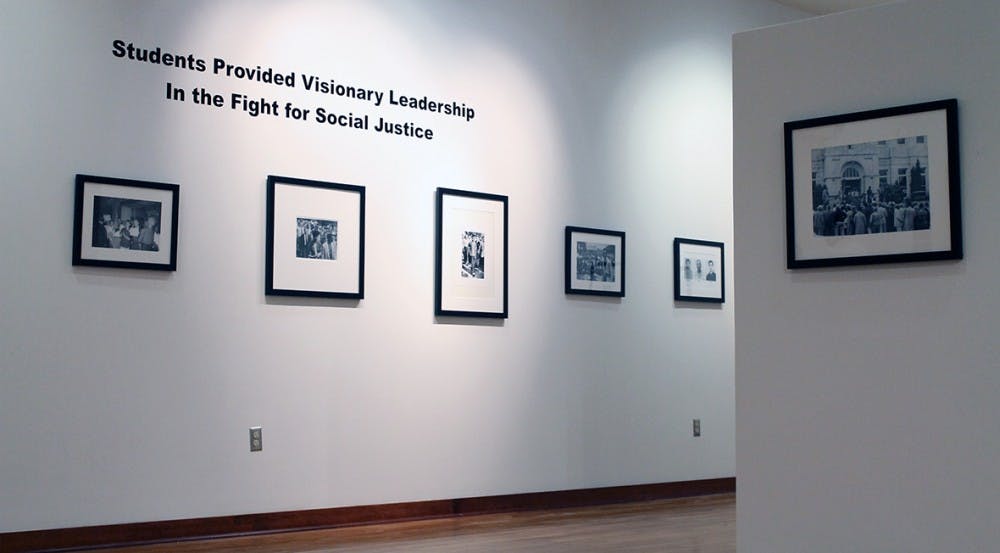The Sonja Haynes Stone Center for Black Culture and History is honoring the unrecognized heroes of social justice movements throughout history in its exhibit “Re/Iterations of Resistance: Moments, Martyrs, Movements,” which opened Tuesday.
Clarissa Goodlett, program and public communications officer for the Stone Center, said the mission of the exhibit is to highlight the regular individuals involved in the social justice movements of their time.
“A lot of times most of us are aware of leaders in movements, but there are a lot of unsung heroes — there’s a lot of students who were leaders, just a lot of regular folks who were involved and made the movements possible,” Goodlett said.
Joseph Jordan, director of the Stone Center, pulled different photographs and memorabilia from various sources, including photographs from the Ebony magazine archives, pieces from the Associated Press and some memorabilia from personal collections.
“At the same time, we try to shine a light on people that can be seen as leaders, we also wanted to talk about folks who often times worked without being heralded or being given credit for the important contributions that they make,” Jordan said.
Viewers attending the exhibit can see a photo of the Greensboro Four — which was included to honor member Franklin McCain, who died earlier this month — as well as a piece on Claudette Colvin, a woman who in 1955 refused to give up her seat on a Montgomery, Ala. city bus in a widely publicized act of protest.
“(Colvin) is the one you often hear about who was really the one who first refused to give up her seat on the bus, but because she was not seen as the best person to represent such a movement they then recruited Rosa Parks,” Jordan said.
Colvin’s story is among others in the exhibit that emphasize the role of students in social justice movements. Barbara Johns was a high school student from Farmville, VA, who is remembered for her actions on behalf of school integration in the 1950s. Johns’ story will also be represented in the exhibit.
Jordan chose Nicole Lee, president of TransAfrica — an Africa-focused advocacy group, to give remarks at the opening of the exhibit because of her activism with U.S. domestic and international policies.




